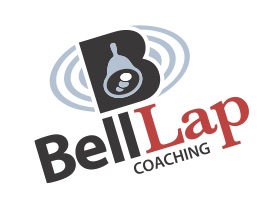Mindful Eating
Living in Vermont affords me 30 whole minutes to and from the grocery store to listen to podcasts. The other day, I heard a broadcast on how “Intelligence lives beyond the brain, in your body.” It inspired our Mindful March theme, and a follow-up thought to my February nutrition piece, which took a very brain-intelligence-focused approach.
In that write-up, I presented macronutrient ratios that are appropriate for base building season, essentially increasing protein and reducing carbohydrate intake to adjust to lower training intensity and to reclaim the body composition desired for upcoming race season.
Using this brain intelligence to log and monitor our food intake, weight and body composition, we may with diligence see reasonable progress in MyFitnessPal or Training Peaks graphs each week that naturally motivates us to keep on keeping on. However, the point of the show was that our bodies as well as our brains are sources of intelligence. Sometimes we need our bodies as well as our brains in order to problem solve and achieve goals.
How does this relate to nutrition goals?
1 - Taking the time to enjoy and savor our food in good company, without the distractions of watching screens or multitasking, can help us connect with the sensations of hunger, thirst, and satiety. We will be able to stick to our nutrition goals much more consistently if we can accurately distinguish hunger from thirst and from other emotions and feel how a properly balanced meal quiets our bodies.
2 - Paying attention to the types of foods we eat and how they make us feel can teach us which ones give us energy and which ones take it away. How do you feel with a protein-rich versus carbohydrate rich breakfast? Do you sleep more soundly after having carbohydrates at night?
3 - Really being in tune with our bodies can provide feedback when our brain intelligence fails! According to education guru Rick Wormeli, making progress is the single biggest motivator to human beings, outweighing recognition for good work, incentives, and even clear goals. The flip side of this is that very few things derail our motivation more than the experience of hard work not paying off. What if we seem to be doing all the right things, but don’t see results? Sometimes our bodies know more than we do in our consciousness. They need more time to recover and adapt before getting down mean and lean again. Or, there is some unknown variable that we have not accounted for: a life stressor, a laundry detergent causing irritation, a hidden source of a food allergen like a recovery mix with whey (dairy), or increased glycogen storage (hence retaining more water) due to increased training. Accepting what the body is telling you is listening to its intelligence and is the first step to staying the course when we don’t see the progress we expect. Sometimes what is required is patience, sometimes it is another lifestyle change; we need both our brains and our bodies to figure that out!
Here are a few exercises you can try as a way of honoring and attending to your body’s intelligence, and practicing mindfulness:
1 - Create your own “eating space” where you focus solely on eating your food. This could be the at the classic kitchen table, on a bench, in a break room, etc. but not in a chair in front of the TV or computer, in the car on your commute, or in bed. Don’t check your phone, write a to-do list, or read a magazine. Just eat, then move on.
2 - Play music while you eat, and each time, try to add one more song to the playlist to extend the time you take to savor your food.
3 - Try a high-carbohydrate breakfast, and write down your energy level around the 2:30-3pm slump hour! Then try a high-protein breakfast, and record your energy level at the same time that day. For a high-carbohydrate breakfast recipe, try making some of my buckwheat granola and eating it with your favorite milk—I like unsweetened cashew milk (50% carbs, 10% protein). For a high-protein breakfast, try making my go-to green smoothie and eating it with a couple eggs prepared your favorite way (35% carbs, 25% protein).
4 - See how you sleep when you front-load the day with your protein, and back-load the day with carbohydrates. That is, have an omelette with veggies for breakfast, chicken and veggies for lunch, and then have fish, veggies, and a good bowl of rice for dinner.
5 - If you feel hungry at an odd time of day, try drinking a large glass of water and waiting 15 minutes. You may have been thirsty! If you are still feeling hunger after the 15 minutes, then eat something.
For Mindful March I’m calling on any testimonials you are willing to share (short or long, anonymous or not) on something your body has taught you! We will collate and include in the next newsletter to help inspire other folks who might be facing a similar challenge!
